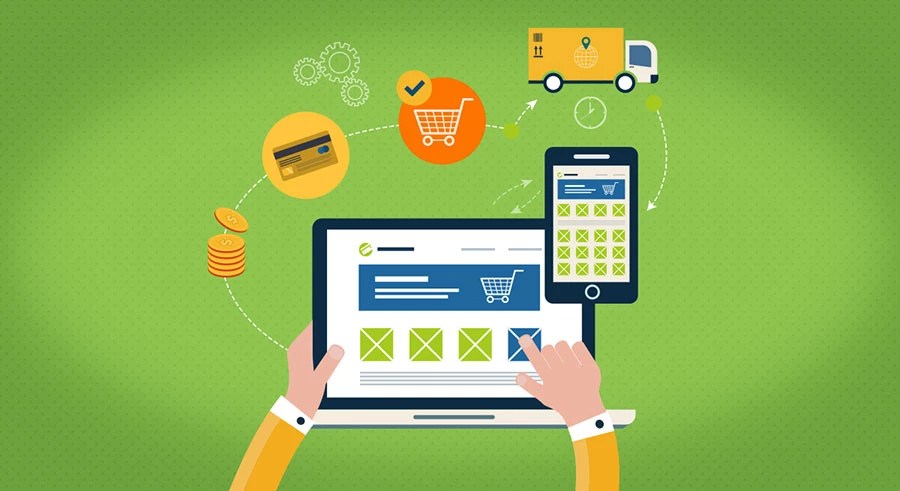Unlocking the Potential of Shopify Third-Party Integrations
Shopify third-party integrations are transforming the way e-commerce businesses operate, enhancing functionality and streamlining operations for better efficiency and customer satisfaction.
In the digital age, the ability to seamlessly integrate various business tools and applications with your e-commerce platform can make a substantial difference in your operational efficiency and overall customer experience. This is particularly true for users of Shopify, one of the leading e-commerce platforms globally.
What Makes Shopify Third-Party Integrations So Crucial?
Imagine you’re running an online store on Shopify, bustling with daily transactions, customer interactions, and back-end processes. The sheer volume of activities can be overwhelming, and this is where Shopify integrations come into play. They connect your Shopify store with numerous third-party applications, ranging from accounting software and email marketing tools to customer relationship management (CRM) systems and beyond. These integrations help automate tasks, sync data across platforms, and provide a more cohesive business management experience.
Exploring the Variety of Shopify Integration Options
The beauty of Shopify third-party integrations lies in their diversity. There are integrations for almost every need: inventory management, marketing, SEO, customer service, and more. Each integration helps streamline specific aspects of a business, allowing for more focused and effective management strategies.
For instance, integrating your Shopify store with a tool like Mailchimp can automate email marketing campaigns based on customer behavior and purchase history. This not only saves time but also personalizes the shopping experience for customers, potentially increasing sales and customer loyalty.
The Role of Shopify API in Custom Integrations
The Shopify API plays a pivotal role in the customization and functionality of third-party integrations. By using the Shopify API, developers can create bespoke solutions that cater specifically to the unique needs of a business. This can range from automating specific tasks that are unique to your business model to integrating with niche market tools that are not widely supported by off-the-shelf integrations.
Shopify API documentation is a treasure trove of information that provides developers with all the necessary tools to create these powerful integrations. Whether it’s retrieving product information, updating inventory levels, or processing orders, the API opens up a world of possibilities for enhancing the functionality of your Shopify store.
Enhancing Functionality with Shopify Webhook
One of the most powerful features provided by Shopify for developers is the Shopify webhook. Webhooks allow for real-time notifications about specific events in a store, such as new orders, updated items, or customer data changes. This means that any third-party systems integrated with your Shopify store can instantly react to changes, maintaining synchronization across platforms without manual intervention.
Case Study: How Shopify Integrations Boosted Business Efficiency
Let’s take the real-life example of a fashion retailer who integrated their Shopify store with an inventory management system. Previously, the retailer had to manually update the inventory across multiple channels, a time-consuming and error-prone process. After integrating with a Shopify-supported inventory management system, they were able to automate this process, reducing errors, saving time, and allowing them to focus more on strategic business decisions rather than day-to-day operations.
Key Benefits of Employing Shopify Integrations
Shopify third-party integrations offer numerous benefits, including:
Increased Efficiency: Automating repetitive tasks frees up time for focusing on growth and expansion strategies.
Enhanced Accuracy: Reducing human error in tasks like inventory management and accounting.
Improved Customer Experience: Providing a seamless shopping experience with personalized marketing and reliable customer service.
Scalability: As your business grows, so can your integrations without a corresponding increase in workload or complexity.
Choosing the Right Shopify Integrations for Your Business
Selecting the right integrations involves understanding your business needs and the functionalities of different third-party apps. It’s important to assess whether an integration will truly add value to your business operations or if it could complicate your processes unnecessarily.
For businesses looking to expand their online presence, integrating advanced SEO tools or platforms that offer detailed analytics might be the way to go. These integrations can provide deep insights into customer behavior, traffic sources, and more, helping to refine marketing strategies and boost online visibility.
Final Thoughts on Shopify Third-Party Integrations
As the e-commerce landscape continues to evolve, the importance of Shopify third-party integrations remains undeniable. They not only simplify the management of online stores but also enhance the capabilities of Shopify, allowing businesses to offer more to their customers while efficiently managing their operations.
For anyone running a Shopify store, exploring the potential of these integrations is well worth the effort. With the right tools connected, your business can operate more smoothly, react more quickly to market changes, and provide a level of service that stands out in the competitive e-commerce environment.



